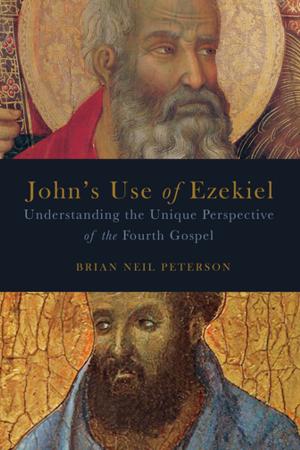How the God of Jesus Makes Peace
Nonfiction, Religion & Spirituality, Bible & Bible Studies, Criticism & Interpretation| Author: | William Frazier | ISBN: | 9781370007769 |
| Publisher: | Thomas Fenton | Publication: | July 13, 2017 |
| Imprint: | Smashwords Edition | Language: | English |
| Author: | William Frazier |
| ISBN: | 9781370007769 |
| Publisher: | Thomas Fenton |
| Publication: | July 13, 2017 |
| Imprint: | Smashwords Edition |
| Language: | English |
The two “major concerns” that theologian/author William Frazier addresses in this book help readers understand the relationship between the death of Jesus and peacemaking. He writes: “First, there was the need to get directly to the point about the saving death of Jesus as the very center about which everything else in my research revolves. The fact that I have attempted this under the rubric of a theology of peace instead of a theology of salvation is simply because peace is our most direct route into the soteriological world, which is to say that in Judeo-Christian thought soteriology and eirenics, or what I will venture to call eirenology, coincide.” He adds, “Related to this is a second concern, which not only motivated my efforts, as did the first, but thoroughly haunted them at every step of the way. This was an awareness, developing gradually as I pursued my research, that the vast majority of Christian commentators rarely, if ever, do more than rather vague, generic justice to the New Testament message about peace.
Father Frazier’s discovery in his first point that “peace is our most direct route into the soteriological world” and in his second point that “the vast majority of Christian commentators rarely, if ever, do more than rather vague, generic justice to the New Testament message about peace” is the heart of this book.
The two “major concerns” that theologian/author William Frazier addresses in this book help readers understand the relationship between the death of Jesus and peacemaking. He writes: “First, there was the need to get directly to the point about the saving death of Jesus as the very center about which everything else in my research revolves. The fact that I have attempted this under the rubric of a theology of peace instead of a theology of salvation is simply because peace is our most direct route into the soteriological world, which is to say that in Judeo-Christian thought soteriology and eirenics, or what I will venture to call eirenology, coincide.” He adds, “Related to this is a second concern, which not only motivated my efforts, as did the first, but thoroughly haunted them at every step of the way. This was an awareness, developing gradually as I pursued my research, that the vast majority of Christian commentators rarely, if ever, do more than rather vague, generic justice to the New Testament message about peace.
Father Frazier’s discovery in his first point that “peace is our most direct route into the soteriological world” and in his second point that “the vast majority of Christian commentators rarely, if ever, do more than rather vague, generic justice to the New Testament message about peace” is the heart of this book.















